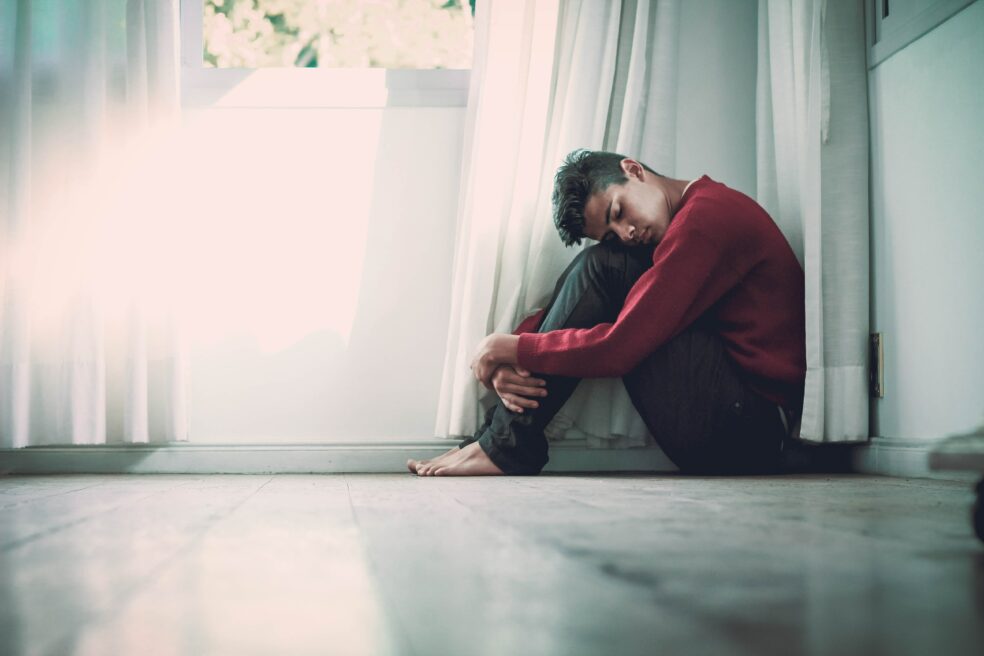You wouldn’t necessarily call yourself a loner. That being said, you’d be lying to yourself if you said you didn’t enjoy your alone time.
Sometimes, you prefer peace and quiet and the comfort of your own home, room, and bed. You decided that it’s much safer there.
You’re just an introvert, right? There’s nothing wrong with you. Your friends are just more extroverted than you. There’s nothing wrong with that.
That’s what you keep telling yourself at least. But why do you get nervous or feel on edge with even the thought of hanging out with them? Why are you worried about embarrassing yourself in front of friends or loved ones?
Let’s learn more about social anxiety, what it is, and why it’s more than just being shy.
What is Social Anxiety?
Social anxiety is another form of anxiety disorder. Social Anxiety Disorder is defined as a mental health condition where social interactions can cause an irrational form of anxiety. An individual who faces social anxiety has a huge fear of public social situations where they feel they may be judged by others or even embarrass themself.
The Signs and Symptoms
People who experience social anxiety have a difficult time being around other people, strangers, friends, and family members included. There is a wide range of psychological and physical symptoms.
These are the most common psychological signs and symptoms of social anxiety:
- Anticipating the worst-case scenario in every social interaction
- Avoidance of certain events or interactions
- Extreme fear of interacting with strangers
- Fear of judgment or offending others
- Overly critical of oneself
- Overthinking physical signs and symptoms that others can see like blushing, sweating, or shaking or trembling voice.
- Worry about humiliating or embarrassing yourself
These are the most common physical signs and symptoms of social anxiety:
- Confusion
- Digestive issues
- Increased heart rate
- Muscle tensions
- Nausea
- Shortness of breath
The Cause
There isn’t an exact cause for social anxiety. That being said, it tends to run in families. It isn’t known for sure why some family members have social anxiety while other members do not.
Research has found that genetics has an influence on how the brain responds to anxiety. With more time and research on the brain and body, researchers hope to be able to better understand the causes of social anxiety and offer more targeted treatment options.
Here are a few of the most common scenarios of social anxiety:
- Answering a question in class at school
- Eating in public
- Going on a job interview
- Giving a presentation at work
- Meeting someone new
- Talking with a cashier at a store
How It Affects Someone
Social anxiety can make someone feel out of control. Social anxiety can get in the way of someone’s day-to-day life and routine. It can affect someone’s career, home life, and relationships. If someone with social anxiety is able to complete their daily tasks, they may experience extreme variations of their signs and symptoms. Unfortunately, without proper treatment, the signs and symptoms can worsen over time. Social anxiety can last for months, years, and even someone’s entire lifetime.
Next Steps
If you think you have social anxiety or have been experiencing some of the signs and symptoms of social anxiety, you’re not alone. Everyone experiences this just as you can experience happiness or sadness.
Reaching out for additional support from a licensed and trained mental health professional can help you get to the root cause of your anxiety. A therapist will be able to work with you to help you better manage the signs and symptoms you’re experiencing and move forward in your life again.
Reach out to set up a consultation for anxiety therapy.

